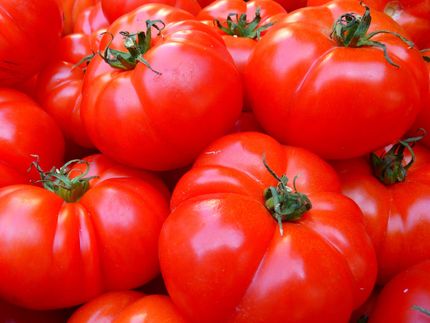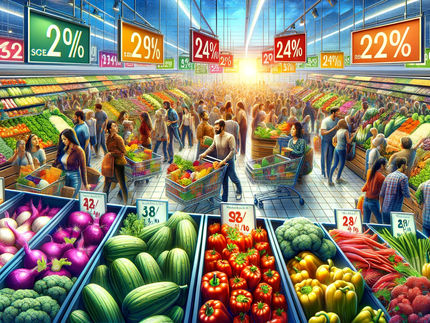Exploiting the potential of the "pegan" diet
The term "peganism" was coined in 2015 by a blog article of the American doctor Mark Hyman. With this diet he wanted to combine the best of the vegan diet and the Paleo diet and thus make it accessible to a broader population.

symbol image
silviarita/Pixabay
That's what pegan nutrition is all about.
As the name suggests, the Paleo diet is about feeding like prehistoric people before agriculture and cattle breeding. In concrete terms, this means: food that is as unprocessed as possible and no cereals, pulses or dairy products. However, meat and eggs are important sources of protein. Now one might think that a "vegan paleo diet" would mean further restrictions.
However, peganism is more about loosening up both diets. Dr. Hyman's rule of thumb is: "Eat it when God created it - let it when man produced it." Accordingly, Peganer as much as possible on fruit and vegetables, little unprocessed and good fats. Meat, gluten-free cereals and pulses may be consumed in moderation - gluten, industrial sugar and dairy products, on the other hand, are on the red list. According to a Mintel survey conducted last year, this meets current consumer interest. For example, one third of Germans consider the "no artificial additives" label to be an important criterion in the selection of healthy foods. Furthermore, almost half of consumers agree that vegetable proteins are just as nutritious as proteins of animal origin.
Changing to a vegan diet certainly offers a number of ethical and health benefits. Many doctors have now recognised that a reduction in meat and milk consumption can contribute to health. However, the absence of such products also has the disadvantage of reducing the absorption of certain nutrients - vitamin B12, for example, is found almost exclusively in foods of animal origin. Peganism should therefore stand for a less radical and balanced approach to nutrition.
Peganism - a long-term trend?
So can peganism develop into a long-term trend? Looking between 2014 and 2018, according to the Mintel Global New Products Database (GNPD), at the global level the United States was the innovation leader for "paleo" food (45 percent of all global food and beverage launches during this period were launched in the United States), followed by Australia (8 percent) and the United Kingdom (7 percent). Accordingly, pegan product launches outside the US are still rare. Nevertheless, for product launches that were awarded both "Paleo" and vegan in the same timeframe, Germany is emerging as the world's third most innovative market.
Although the trend is currently mainly in the USA, pegane products also offer potential for food and beverage manufacturers in Germany. According to Mintel GNPD, the pegan range mainly includes snack bars. In the period between 2016 and 2018, 42 percent of the vegan and paleo-friendly product launches in Germany fell into the snack bar category. In fact, this category has been the global innovation leader for such products over the last five years. Other interesting categories, which have been extended to include pegan foods in Germany over the past three years, are meal replacement products and salty snacks (9 percent of all product launches in Germany last year that were advertised as pegan).
Conclusion of Mintel:
With the ever-increasing willingness to adopt healthier diets, but overlapping with an increasingly hectic consumer lifestyle, pegan meal substitutes and snacks in particular could offer growth potential. After all, in a survey last year 43 percent of Germans said that their hectic everyday life made snacks a necessity. Thus pegane innovations are quite interesting in this category. By adopting a broader health message, supported by a minimal manufacturing process and "clean label", these products could meet the general consumer interest for healthy snack options while appealing to a wider range of consumers.
Note: This article has been translated using a computer system without human intervention. LUMITOS offers these automatic translations to present a wider range of current news. Since this article has been translated with automatic translation, it is possible that it contains errors in vocabulary, syntax or grammar. The original article in German can be found here.




























































